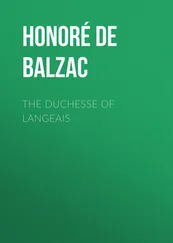Dino Dorothée - Memoirs of the Duchesse de Dino (Afterwards Duchesse de Talleyrand et de Sagan), 1836-1840
Здесь есть возможность читать онлайн «Dino Dorothée - Memoirs of the Duchesse de Dino (Afterwards Duchesse de Talleyrand et de Sagan), 1836-1840» — ознакомительный отрывок электронной книги совершенно бесплатно, а после прочтения отрывка купить полную версию. В некоторых случаях можно слушать аудио, скачать через торрент в формате fb2 и присутствует краткое содержание. Жанр: foreign_antique, foreign_prose, на английском языке. Описание произведения, (предисловие) а так же отзывы посетителей доступны на портале библиотеки ЛибКат.
- Название:Memoirs of the Duchesse de Dino (Afterwards Duchesse de Talleyrand et de Sagan), 1836-1840
- Автор:
- Жанр:
- Год:неизвестен
- ISBN:нет данных
- Рейтинг книги:4 / 5. Голосов: 1
-
Избранное:Добавить в избранное
- Отзывы:
-
Ваша оценка:
- 80
- 1
- 2
- 3
- 4
- 5
Memoirs of the Duchesse de Dino (Afterwards Duchesse de Talleyrand et de Sagan), 1836-1840: краткое содержание, описание и аннотация
Предлагаем к чтению аннотацию, описание, краткое содержание или предисловие (зависит от того, что написал сам автор книги «Memoirs of the Duchesse de Dino (Afterwards Duchesse de Talleyrand et de Sagan), 1836-1840»). Если вы не нашли необходимую информацию о книге — напишите в комментариях, мы постараемся отыскать её.
Memoirs of the Duchesse de Dino (Afterwards Duchesse de Talleyrand et de Sagan), 1836-1840 — читать онлайн ознакомительный отрывок
Ниже представлен текст книги, разбитый по страницам. Система сохранения места последней прочитанной страницы, позволяет с удобством читать онлайн бесплатно книгу «Memoirs of the Duchesse de Dino (Afterwards Duchesse de Talleyrand et de Sagan), 1836-1840», без необходимости каждый раз заново искать на чём Вы остановились. Поставьте закладку, и сможете в любой момент перейти на страницу, на которой закончили чтение.
Интервал:
Закладка:
This is poor stuff, but poorer still is the fact that it is impossible to form a Ministry, in seriousness or otherwise. Yesterday I was at the Tuileries. The Ministers who had resigned were all grouped about the King, but, I think, with no particular object. It is deplorable!
Paris, February 12, 1836. – Of Ministerial news there is none; all that I have learned yesterday is as follows: Dupin, Passy, and Sauzet spent three hours with the King, and told him that they could not undertake the formation of a Ministry, as various intrigues had made the attempt impossible; they were, however, ready themselves to enter the Ministry, if their services were agreeable to the King. They then withdrew, and the King sent for M. Molé in the course of the evening, but I cannot say what passed at this interview.
Paris, February 13, 1836. – I have the following information as regards the events of yesterday concerning the Ministerial crisis. M. Molé declares that he will not take office without M. Thiers, who will not come in without M. Guizot; he, again, will not act without M. de Broglie, unless the latter recognises that he is himself the only real obstacle, insists that his colleagues should take office without him, and writes them a letter to that effect, dated from Broglie. M. de Salvandy attempted to enlighten him upon this point, but met with a very poor reception. A lively scene is said to have taken place between MM. de Broglie and Guizot; certainly M. de Broglie is obviously agitated, and so ill-tempered as to rouse the pity of his friends and the contempt of other men. Some people think that the King will summon de Broglie and request him with greater authority than Salvandy used to put an end to this deplorable state of affairs, which is only continued on his account.
Dupin's chance has entirely disappeared. During the two days when it was thought that he would be Minister, Thiers and Guizot both entered the competition for the Presidency, and so gained an opportunity of counting the votes in their favour. M. Guizot received eight, M. Martin du Nord fifteen; the remainder of the Ministerial party would have voted for M. Thiers and secured for him the refusal of the position.
Paris, February 16, 1836. – Fieschi and his accomplices have been condemned to death; M. de Mareuil came yesterday to tell us of the sentence, at eleven o'clock in the evening. 11 11 The sentence which condemned Fieschi, Pépin, and Morey to death. They were executed at the Barrière Saint-Jacques on February 19.
It seems that many of the peers gave long explanations to justify their manner of voting. A small fraction of the Chamber considered that the circumstantial evidence against Pépin and Morey was inadequate to justify the extreme penalty, and preferred to inflict penal servitude for life. Fieschi was condemned to death unanimously, and M. Barthe asked that the punishments reserved for parricides should be added to the death penalty.
The newspapers announce the death of Madame Bonaparte; her great-granddaughter – that is, the daughter of Joseph, who married the son of Lucien – was the only member of her numerous family at her side. Cardinal Fesch has been very attentive to her, and she leaves him her pictures; it is also thought that the division of her inheritance will cause fresh dissensions among her children, who are by no means at harmony with one another, for it seems that during her lifetime she gave considerable sums to Lucien, Jérôme, and to Madame Murat, which sums they are not willing to repay.
Paris, February 17, 1836. – Yesterday the King assembled his former Ministers and announced that in the first place he would not accept their resignations until another Cabinet was formed. Furthermore, he said that it was only by an accident that a majority in the Chamber had been against them; their system was that of the Chamber, although certain individuals in the Cabinet might not be agreeable to the Chamber, and he would therefore be delighted to see them all remain in office; if, however, they thought that any of their members were likely to keep the Chamber in a state of exasperation, he asked them to consider the matter among themselves and then to let him know upon what he could rely. M. de Broglie said that the King should make trial of the Third Party, to which the King replied: "It may please you, sir, to restate the weakness of that Third Party, but it does not please me to make so disastrous an attempt; I have had enough of three days' ministries; the majority is not to be found either in the Third Party or in the Left, but with you, gentlemen, or, if not with all of you, at any rate with some. Your arrangements and mutual engagements ought to give way before the gravity of the situation: so much I expect from your honesty and your desire for the general welfare; for my own part, gentlemen, I shall fold my arms and bide my time at Saint-Cloud." MM. de Broglie and Guizot replied that no member of the Cabinet was exactly bound, but that there were certain conventions which they must respect in each member's case. This was a very inopportune reply at such a moment, especially from the first speaker, who could have cut the Gordian knot at one word and have simplified the position. No one knows what the result will be, unless matters should turn out as M. Royer-Collard predicted to M. Thiers last Friday: "You are impossible to-day, but in a week you will be necessary, indispensable, and absolute."
M. de Talleyrand and myself visited the Queen yesterday. The fact that the Court was in mourning for the Queen of Naples, together with the trial of Fieschi and the Ministerial crisis, made it impossible for the Château to take part in the pleasures of the carnival, and a very serious spirit prevailed. The King's attention was occupied by thoughts of the punishment which awaited the prisoners condemned the previous evening, and he had not ventured to go out, because he knew that Madame Pépin and her children were lying in wait for him. The Château was mournful indeed, and formed a painful contrast with the joyful tumult in the streets. M. Pasquier came to tell the King that Pépin had asked to see him that morning, so that the execution must be postponed until the next day.
Before going home I spent half an hour with Madame de Lieven. No one was there except Lady Charlotte Grenville and M. Berryer, who said that when one knew nothing one was able to say anything one liked, and that he had no hesitation in asserting that Thiers' was the only possible combination, and alone likely to be agreeable to the Chamber.
Paris, February 19, 1836. – Yesterday morning I had a call from M. Thiers, who had definitely accepted the task of forming a Cabinet and acting as President. He proposed to spend the rest of the day in making up his list. He has too much common sense to underrate the difficulty of his new position, and too much courage or blindness to be dismayed by it. M. Molé failed to secure election to the Academy; it has been a disastrous week for him.
Paris, February 20, 1836. – The following are the actual words written by the King beneath the signature which he was obliged to append to the death-warrants of Fieschi, Pépin, Morey, &c.: "It is only a profound sense of duty which induces me to give an approval which is one of the most painful acts of my life; however, considering the frankness which Fieschi showed in his confession and his conduct during the trial, I intend that the subordinate parts of his punishment shall be remitted, and I deeply regret that my conscience will not allow me to do more."
Paris, February 21, 1836. – M. Thiers is finding difficulties in the way of his attempt to combine a Ministry; every one is willing to work with him or under him, but not in company with others. At the same time it is important that the Cabinet should be both strong and reputable. There are difficulties everywhere, even for superior mortals.
Читать дальшеИнтервал:
Закладка:
Похожие книги на «Memoirs of the Duchesse de Dino (Afterwards Duchesse de Talleyrand et de Sagan), 1836-1840»
Представляем Вашему вниманию похожие книги на «Memoirs of the Duchesse de Dino (Afterwards Duchesse de Talleyrand et de Sagan), 1836-1840» списком для выбора. Мы отобрали схожую по названию и смыслу литературу в надежде предоставить читателям больше вариантов отыскать новые, интересные, ещё непрочитанные произведения.
Обсуждение, отзывы о книге «Memoirs of the Duchesse de Dino (Afterwards Duchesse de Talleyrand et de Sagan), 1836-1840» и просто собственные мнения читателей. Оставьте ваши комментарии, напишите, что Вы думаете о произведении, его смысле или главных героях. Укажите что конкретно понравилось, а что нет, и почему Вы так считаете.












